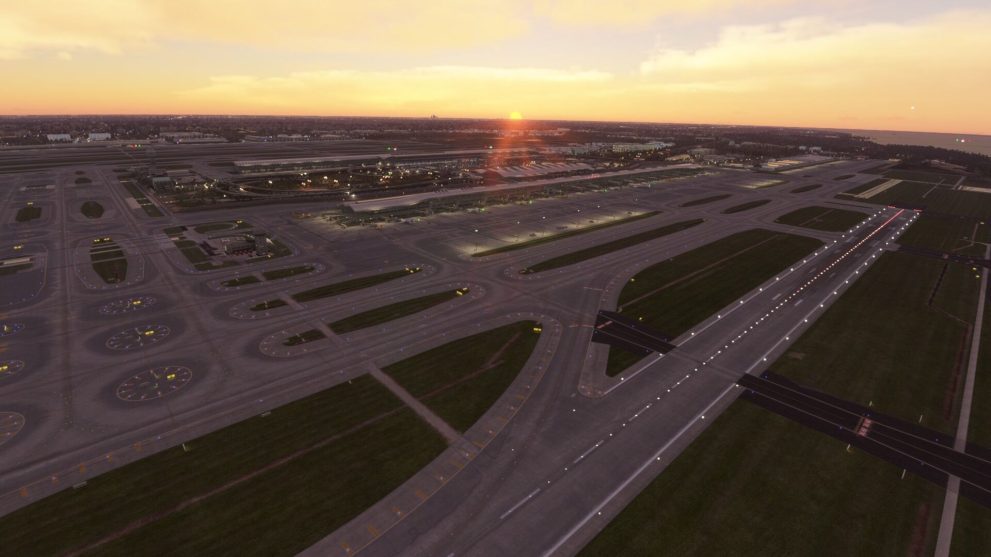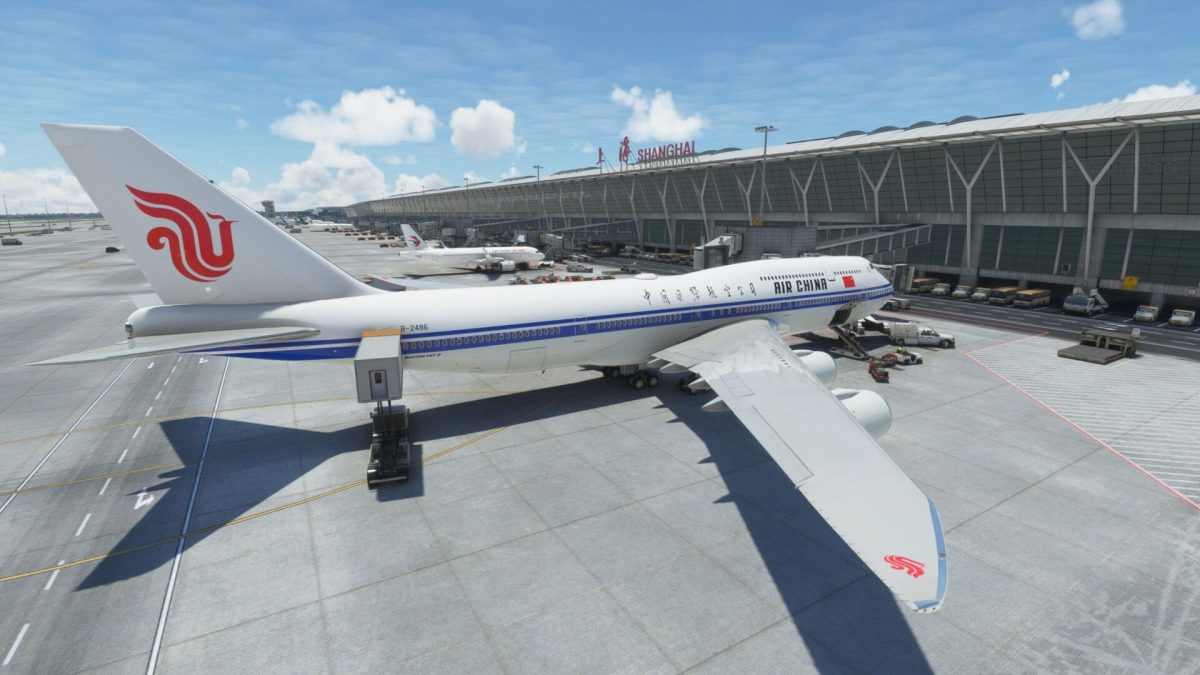Third-party developer WF Scenery Studio recently released Shanghai Pudong International Airport (ZSPD) for Microsoft Flight Simulator.
As one of the largest and most relevant airports in China and the country’s primary international destination, this add-on is certainly welcome for those who enjoy flying in Asia.
It’s available on SimMarket for approximately $28 plus applicable VAT and comes with its own installer.
If you want to take a good look at what the scenery looks like, you can watch an ILS approach and landing on runway 17R (using Navigraph’s navigation data) in the first video below, and a full flyover in a variety of lighting and weather conditions in the second video.
It’s worth mentioning that the video above includes SamScene3D’s Shanghai city add-on, which is pretty much the perfect complement for this airport, as several approaches will bring you directly over the city itself, especially coming from the mainland.
Published approaches, SIDs, and STARs are all present, but the ILS localizers are slightly shifted to the side. This is an issue inherited directly from the original Microsoft Flight Simulator data, and something I noticed is pretty common to airports located in China. It usually gets fixed by developers pretty fast, and hopefully, it’ll happen to this add-on as well. That being said, if you have Navigraph, this problem won’t affect you.
On the other hand, visual approaches can take advantage of properly calibrated PAPI lights, while taxiways are all correctly labeled, meaning that default ATC will provide helpful guidance to navigate this complex airport and AI aircraft won’t have issues negotiating it as well.
I’ve noticed only one small issue where runway 16R/34L meets taxiway Romeo 4. An underlying glitch will cause AI aircraft to vacate the runway after landing to cut into the grass. Speaking of live AI traffic, you’ll find a ton of that in Shanghai, so expect a very lively airport.
It’s worth mentioning that Microsoft Flight Simulator recognizes only four runways. The newest 15/33 runway isn’t implemented functionally (but is fully modeled visually). Apparently, it’s used exclusively as a test runway for the nearby COMAC plant, which is nicely modeled to add more flavor to the scenery.
All ground services are available and functional, including the fuel trucks that are so often neglected by scenery developers.
The orthoimagery upon which the aircraft is based is detailed enough and serves as a base for beautifully textured runways, taxiways, and aprons. The developer has done a masterful job in representing realistic concrete and tarmac surfaces. All the markings are true to the charts and all the photographic and video sources I could find. They’re also spot-on in terms of weathering: not too faded, nor too cartoony.
A relatively small issue is that the rubber marks on the braking zones should be present only on runway 16L/34R and 17R/35L, as those are usually used for approaches, while the other runways are used for departures, so they don’t get blackened by the tires of braking aircraft nearly as much.

Another imperfection is that the aprons used by the COMAC plant show very visible outlines for the parked C919s and ARJ21s. While the airport doesn’t feature static aircraft (and that’s a perfectly valid choice for Microsoft Flight Simulator scenery, that many will agree with) perhaps some would have been a welcome addition to the plant, covering the outlines.
There are occasional textures affected by flickering where the developer has carved some very nicely modeled underground highways and roads into the terrain, but a patch swiftly addressed most of those already, and the issues that are left are visible only from certain angles.
The modeling and texturing of the terminals are a masterpiece, highlighting full interiors and plenty of details both airside and landside. This is further enhanced by some of the best custom jetways I’ve seen on the market and masterful use of weathering and physically-based rendering.
The rest of the airport buildings including towers, the cargo areas, hotels, the COMAC plant, and quite a few surrounding offices and facilities also show high-quality craftsmanship.

We also get a fully modeled highway and the monorail that serves the airport is animated.
Looking at smaller but no less important details, signage (both 2D and 3D) is crisp and on-point, and there is plenty of clutter and vehicles decorating the aprons, featuring the appropriate liveries belonging to local operators.
All of these elements make Shanghai Pudong a real sight to behold, worthy of the importance of the real hub.
The airport reacts well to weather, with its textures decorated by beautiful reflections in the rain. Only the glass windows stand out just a little bit, but that appears to be a limitation of the engine and the developer actually seems to have made a conscious effort to limit the issue. Snow coverage isn’t perfect (but it almost never is), but it’s at least above average.
Night Lighting looks great, giving the airport a very natural look after dark. Even the interiors, which often tend to be the weak spot of this area in many airports, look very nice from the outside when they’re lit up, thanks to appropriately tinted glass.


Speaking of performance, the airport is absolutely massive and richly detailed, so a significant hit on hardware resources is to be expected. Yet, it’s far from crippling. On my PC (RTX 3070, Ryzen 9 3900x, 32 GB RAM) at 1440p resolution and Ultra detail settings, I lose about 10 FPS compared to the default scenery.
That definitely isn’t bad, considering that what you’ll get in Microsoft Flight Simulator out of the box looks terrible, while this add-on looks fantastic and adds an absolutely massive amount of missing detail. You can see for yourself in the comparison above.
Ultimately, a few small issues can’t really hold back the quality of Shanghai Pudong Airport by WF Scenery Studio. It does justice to the real airport and it’s certainly among the airports available for the sim showcasing the highest craftsmanship.
The fact that this kind of top-notch quality standard is associated with such a massive scale increases the add-on’s value even further.
- Absolutely beautiful modeling and texturing for terminals and airport buildings.
- Good precision in the portrayal of the real airport.
- Runways, taxiways, and aprons look great.
- Fantastic night lighting.
- Lively live traffic.
- ILS localizers slightly shifted to the side.
- A few flickering textures.
- Rubber marks should be only on the runways used for landing.













Updated: Jul 6, 2021 08:43 am